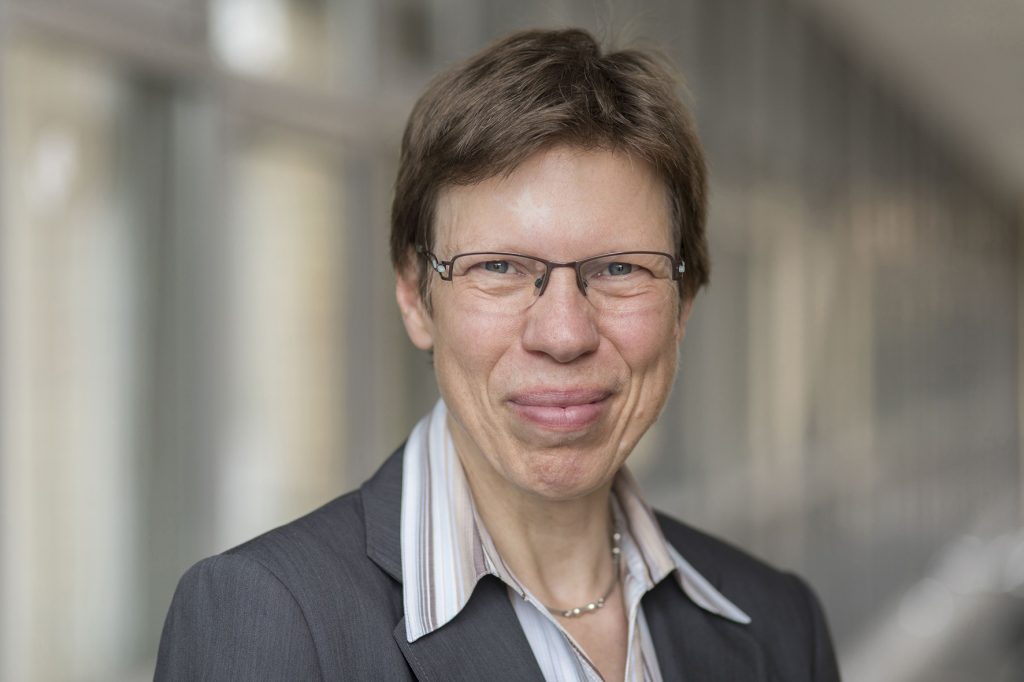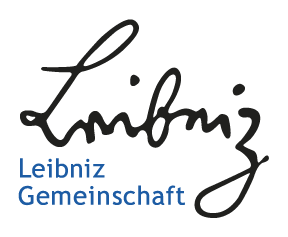Focus on openness: interview with Dr Irina Sens
A discussion about the importance of libraries in today’s world and why TIB is more than just a library.
24 October is the Tag der Bibliotheken (National Day of Libraries). A day that focuses on the role of Germany’s more than 9,000 libraries, be they academic, public, children’s/youth’s, specialist, archive or digital libraries. We take this occasion to talk to Dr Irina Sens, Deputy Director and Head of Library Operations at TIB, about the current importance of libraries in general – and of TIB in particular.
Ms Sens, let’s start our conversation with a key question: Why do we still need libraries in the digital world? Aren’t libraries superfluous in an age when so much information is readily available on the internet?
Clearly, libraries are relevant in the digital age because they are much more than just collections of books. They are far from superfluous, given their role as places of knowledge and education. It is true that the internet provides an infinite amount of information, but it is disorganised and unreliable. “We are drowning in information but starved for knowledge” – this quote from the author John Naisbitt illustrates the problem of turning information into knowledge: information is abundant, but is it all relevant and presented in the right context? Libraries are trusted filters and neutral spaces, providing broad access to quality-controlled physical and digital information.

Over the last few years – or even decades – libraries have changed, evolving in and with the digital world. When it comes to openness – openness in science – for example, libraries are essential. In today’s digital world, libraries play a vital role in providing access to information and research findings for all.
We are committed to ensuring that all information is accessible – not only freely available but also fee-based information. But not only that – TIB is also a major player and pioneer when it comes to freely accessible publications, data and educational resources, as well as transparent and collaborative methods in the research process. As a public information centre, we have been committed to openness in all its facets for many years, whether in the context of Open Science, Open Access, Open Data or Open Educational Resources (OER). After all, when researchers share their results, it also leads to better dissemination of knowledge and greater collaboration between scientists.
In other words, TIB is more than a library, more than just a collection of books. What is its role in the scientific community and in society as a whole?
Since its foundation in 1959, TIB has in many ways been more than a library in the traditional sense. The library is a treasure trove of knowledge: not only printed books and journals, but also digital resources, data, research information and multimedia materials such as videos are part of our holdings, which are unique in the fields of science and technology. These materials and information must be made available to researchers and all other interested parties. These resources are vital for researchers, students, business and industry – they are the drivers of innovation and progress in Germany and around the world.
It is important that these resources are available not only today, but also in the future. Thanks to digital preservation, we also preserve cultural heritage in the form of historical documents, books and works of art for future generations, and ensure that valuable information and data will remain accessible for decades to come. One of the basic requirements for new research, especially in science, is the ability to verify and reproduce research findings.
Isaac Newton in a letter to Robert Hooke, 5 February 1676
The value of the findings of other scientists to one’s own research is illustrated by the sentence Isaac Newton wrote to the polymath Robert Hooke in 1676: “If I have seen further, it is by standing on the shoulders of giants.” This was Newton’s way of saying that his outstanding scientific contribution, for example in the field of gravitation, was only possible because his research benefited from the knowledge and insights of scholars before him and he was able to build on them. Only if the knowledge of others is preserved and accessible can it be developed and reused.
Over the years, access to information has changed, as has the nature of the information itself. There are fewer books and journals on library shelves, open access is increasingly important, and digital content, including research data, videos and 3D models, is growing in significance. And this is precisely the remit of TIB: to provide access to these materials through a variety of platforms. A total of 143 million records can be searched via our TIB Portal, of which more than 71 million electronic full texts are directly accessible, half of which are freely available. Scientific films can be found on the TIB’s AV Portal, and free and open educational resources are made available on the twillo portal.
Last but not least, TIB is not only a library, but also a research institution that conducts its own research – it has just been certified as an enterprising research library in the audit.
That sounds exciting! These are things that might not occur to many people when they hear the word “library”. How do you see TIB’s role in the digital transformation and future knowledge and information provision?
TIB undoubtedly plays key role in the digital transformation and future knowledge provision. As a research institution, we develop robust digital infrastructures that enable us to index and secure knowledge, and make it available long-term. In addition to working on innovative solutions for the organisation, provision and use of knowledge, we develop and operate digital services and platforms that facilitate research and teaching. Examples include repositories and tools for data analysis and collaboration.
But also the development of the Open Research Knowledge Graph – or ORKG for short. The ORKG helps to make research contributions human- and machine-readable, with semantic descriptions, and to structure large amounts of data from different sources. In this way, previously unknown connections are revealed and new knowledge can emerge. The ORKG, developed by TIB, is a central hub for organising scientific information from publications. It can also help researchers to get an overview of the current state of the art on specific research questions and relevant contributions to their topic. This is also necessary and a real support for science, given the flood of publications every year.
Data, especially research data, is another topic that plays a special role at TIB. What challenges does TIB currently see regarding access to scientific information and data?
Research data is of great importance for science. Advances in technology, digitalisation, and new and faster processes such as simulation and modelling mean that huge amounts of data are now generated in a short space of time. On the one hand, this offers great opportunities for scientific research, because research data is a true treasure for science; it comes as no surprise that data has been described as the raw material of the 21st century. We at TIB were quick to recognise this.
As early as 2009, TIB joined forces with partners to found DataCite. DataCite collects research data from the web and makes it permanently accessible and uniquely citable for everyone – thanks to the allocation of DOIs (Digital Object Identifiers). By the end of 2022, 1.7 million DOIs had been registered through TIB alone. The sheer volume of research data is a challenge to organise, access, store and archive. Institutions such as libraries are working to develop appropriate strategies and technologies to deal with these volumes of data so that, once created, the data can be used and reused in the best way possible.
The Joint Science Conference (GWK) also recognised this. By funding the National Research Data Infrastructure (NFDI), it provides the entire German science system with access to valuable scientific and research data resources. After all, freely available and reusable data literally saves time and money. The aim is to use data, a “raw material”, to sustainably strengthen the innovative power of Germany as a research location. TIB plays a key role in the implementation of the NFDI: the library draws on its many years of experience in dealing with scientific information and research data to create an efficient and sustainable data infrastructure that maximises the value of data in research and for society.
Of course, when it comes to data, questions of ethics and privacy must not be forgotten. This includes training scientists in the use and management of data.
Apart from all these topics, TIB is of course also a library, not least in its function as the University Library of Leibniz Universität Hannover (LUH). How does TIB stand out in this respect?
Firstly, its extensive media collections – both print and digital. Our five sites have enough media on their shelves alone to stretch 215 kilometres from end to end. To give you an idea of just how far that is: it is the distance from Hannover to Cuxhaven on the North Sea coast. For LUH students, however, TIB is above all a place of learning, meeting and exchange. The library has nearly 1,800 reading desks: individual workplaces, group study rooms for collaborative work, and study cubicles that can be rented for up to three months.

Through on-site and online training courses and workshops on topics such as literature search and academic writing, TIB staff teach the key skills needed to handle information. The library organises access to digital information so that students, teachers and researchers can use it anytime, anywhere. Unfortunately, not all digital information providers allow everything that we and the researchers want.
There are also other areas of collaboration with LUH, such as advising LUH members on open access. Why should I publish open access? How do I go about publishing open access? How can I identify reputable journals in which to publish my articles open access? We have answers to questions such as these.
To conclude: What would you like people to take away from today’s Tag der Bibliotheken (National Day of Libraries)
Libraries, i.e. institutions like TIB, are not only places of knowledge and treasure troves of cultural heritage, but also catalysts for scientific progress and innovation. As libraries, we serve research and society by providing access to information. Use this access, these valuable resources that libraries offer, to explore the world of knowledge and contribute to the development of science and technology. It is the people who work in and visit libraries that make them the precious and special places they are. We are all part of that.

... arbeitet seit 2012 als Pressereferentin in der Stabsstelle Kommunikation an der TIB.


Eine Antwort auf “Focus on openness: interview with Dr Irina Sens”